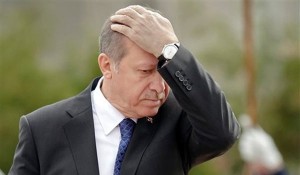Ever since New Year’s Day, when a gunman killed at least 39 partiers at the Reina nightclub in Istanbul, watchers of the Islamic State have engaged in a familiar, morbid countdown. How long until the Islamic State issues a statement taking credit for the attack? This morning, the wait ended with a press release from the group avowing its authorship of the carnage. Turkish newspapers report that many of the victims died from head shots, point-blank. First they were wounded or cornered, then executed. The killer remains at large.
It is proper to resist the temptation to assess the gravity of this attack by noting that its body count is less than that of Omar Mateen’s Islamic State-inspired attack at the Pulse nightclub in Orlando (50 dead), or the coordinated attacks in Paris in November 2015 (130 dead). Allocating column inches according to these benchmarks is the very definition of normalization. (If this attack had taken place five years ago, it would have prompted smothering coverage for days, not a quickly expiring moment of media attention, and a return to regularly scheduled coverage.)
Moreover, in this case especially, the politics of the attack and its avowal make the Reina massacre much more pivotal than many others with higher tallies of casualties. The Islamic State has now formally ended its separate peace with Turkey. Since the group’s sack of Mosul in mid-2014, when it took captive 46 Turks, including diplomats, from the consulate there, the Turkish posture toward the Islamic State has been inconsistent at best. Turkey negotiated the hostages’ freedom (at what price is unclear), and its border remained permeable to anyone who wished to cross it—rebels opposed to Syrian President Bashar al-Assad, but also jihadists bound for the Islamic State—for well over a year. At the same time, Turkey allowed U.S. anti-Islamic State operations out of Incirlik Air Base. The Islamic State, for its part, fulminated against the Turkish “secular” government (never mind that President Recep Tayyip Erdogan is himself an Islamist) in its propaganda and even mounted a few attacks.
But it never claimed an attack outright. Few doubted that the Istanbul Airport raid was the Islamic State’s handiwork, and many smaller attacks have likewise been attributed but not avowed. (A car bombing in Diyarbakir in November was claimed for the Islamic State by its Amaq News Agency. But the attribution for that attack is still murky, as it was claimed by a Kurdish terror group as well.) Turkey has, up till now, been unique among victims in never having its victimhood acknowledged by its assailant. Whatever value this fiction held, it has now ended.
The countdown I mentioned earlier—the social-media vigil kept by Islamic State analysts, for the moment the attack was claimed through the group’s official channels—is rarely undertaken with such certainty of the outcome. The target of the attack, a gathering of mostly Muslim merrymakers celebrating the end of a year as marked on the Christian calendar, was pure Islamic State bait. The commando-style raid likewise bears the group’s hallmarks. But we knew, too, that Turkey was by now an overripe target, and another, longer countdown, for its inclusion on the list of countries targeted aggressively and openly, had reached its conclusion as well.
theatlantic.com



